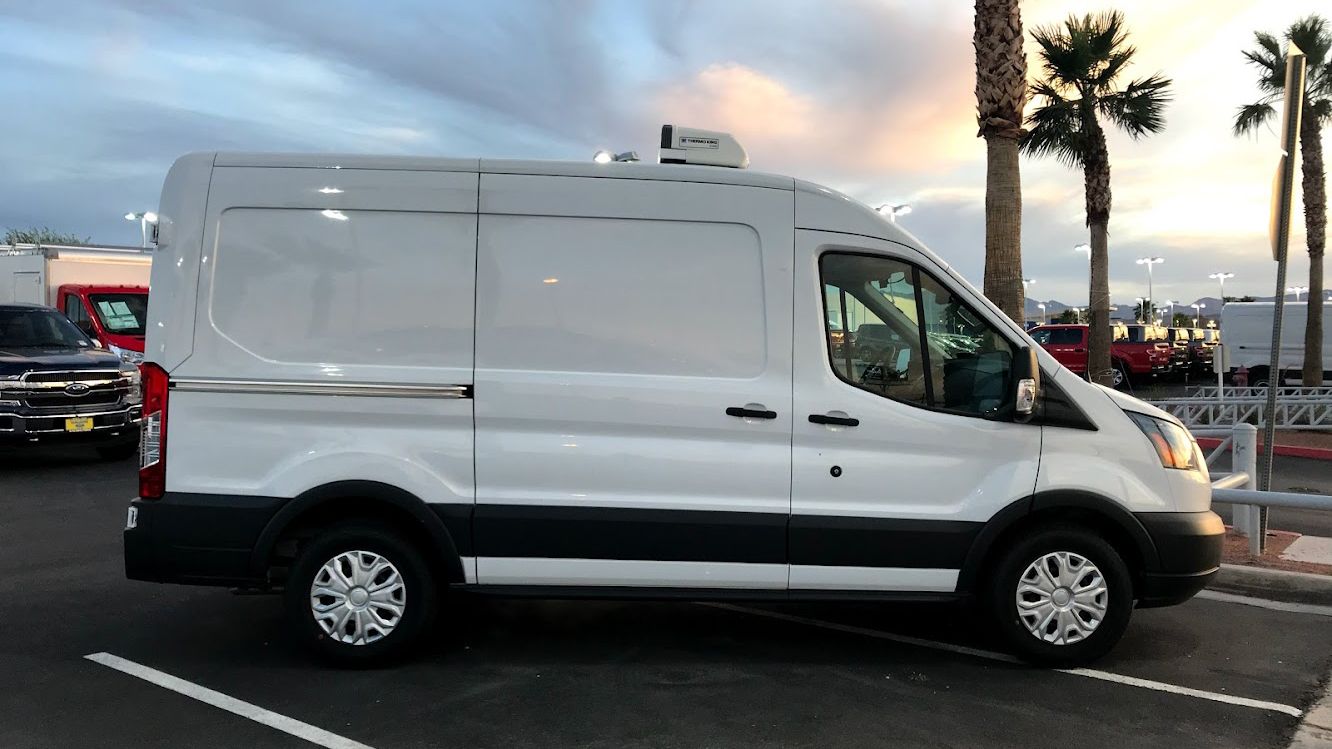Cannabis distribution poses unique challenges: stringent security, strict chain-of-custody protocols, regulatory compliance, and climate-sensitive cargo. As a fleet manager, your choice of vehicle not only affects operational efficiency but also risk management, regulatory acceptance, and brand reputation.
Unmarked Cargo Vans (e.g., Ford Transit, Mercedes Sprinter)
These midsize, windowless vans are consistently cited as the industry standard:
- Security & discretion: State regulations (e.g., Nevada) require that vehicles not display cannabis signage and that they carry GPS tracking, audible alarms, and locked cargo areas.
- Ease of operation: Vans under 10,000 lb gross vehicle weight (GVW) typically bypass federal DOT registration—significant in states like California.
- Fleet popularity: Reports from industry logistics sources confirm that small fleets of unmarked cargo vans remain the favored choice.
Opinion: For typical intrastate distribution, a well‑specified Sprinter or Transit van is the most practical, balancing capacity with discretion and compliance.
Armored Cargo Vehicles
For high-value or high-risk shipments, militarized protection may be essential:
- Enhanced protection: Some security companies retrofit Ford Transits with bullet-resistant panels, armoring windows and bodies.
- Advanced cargo vans: Other providers offer climate-controlled, secure vehicles designed specifically for cannabis logistics.
Opinion: While costly, armored vans are worth it for high-volume or high-value routes; they deter theft and may reduce insurance premiums.
Climate-Controlled Refrigerated Trucks
Temperature-sensitive products—extracts, edibles, live plants—require precise environmental control:
- Regulatory mandate: Nevada law mandates temperature control under 41 °F (5 °C) for perishable products.
- Integrated HVAC systems: Specialist vehicles combine climate control and humidity regulation for optimal product integrity.
- Academic support: Research into cooling policies shows objective improvements in temperature compliance and fuel efficiency.
Opinion: If transporting perishable or edibles products, outfitting a cargo van with refrigeration isn’t optional—it’s critical for quality and compliance.
Telematics-Enabled Fleet Vehicles
Regardless of vehicle type, telematics systems are essential:
- Driver oversight: Some solutions use GPS, AI-fed dashcams, video feeds, and geofencing to prevent diversion, document deliveries, and review driver behavior.
- Chain of custody discipline: Real-time tracking ensures compliance with manifest and routing rules.
Opinion: Telematics isn’t optional—it’s central to secure, compliant, and efficient fleet management.
Best Combination Strategy
- Standard runs: Unmarked Transits or Sprinters equipped with GPS, lockable cargo spaces, dash cams, and alarms.
- High-risk operations: Armored vans with climate control and heavy-duty telematics packages.
- Edibles/live goods: Refrigerated cargo vans programmed to maintain compliance-grade temperatures.
- All fleets: Integrated telematics and video tracking are indispensable across all vehicle types.
Final Thoughts
Yes, there are clear preferences for cannabis distribution vehicles:
- Unmarked windowless cargo vans dominate for most deliveries.
- Armored variants cater to high-value loads.
- Refrigerated units are essential for perishable or sensitive goods.
- Telematics must be embedded in every vehicle.
Legislation, insurance requirements, and industry data all reinforce this layered approach: match vehicle type and equipment to cargo risk.



